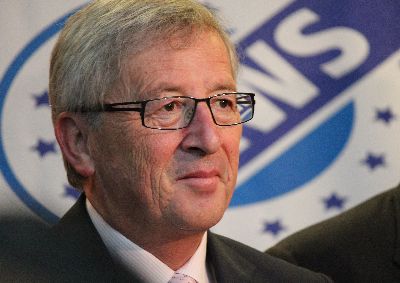During today’s Commission meeting, President Juncker presented his suggestions for a reform of the Commission’s Code of Conduct. The public outcry over former Commission President Barroso’s changeover to Goldman Sachs had triggered this discussion to reform Commission’s integrity rules. Juncker proposed to prolong the cooling-off time from 18 to 24 months for Commissioners and to 36 months for Presidents. The Commission’s ethics committee should start proceedings also in response to external complaints and publish decisions as well as an annual report. Commissioners should declare stocks and shares above 10 000 EUR and below if they could cause a conflict of interest.
The EU treaties give Parliament the right to issue a formal assessment of Commission’s proposal before Commission can adopt its new Code of Conduct. In Parliament, the responsible Committee on Constitutional Affairs (AFCO), adopted demands on such a new Code of Conduct as part of my report on “Transparency, Accountability and Integrity in the EU institutions”.
MEP Sven Giegold, rapporteur for Transparency, Accountability and Integrity in the EU institutions, comments:
Juncker’s proposed mini-extension of a 6 months longer cooling-off for Commissioners is rather amusing. The proposed right of NGOs to start proceedings and the increased transparency of decisions of Commission’s ethics committee are nevertheless relevant progress.
What the Commission proposal lacks most is to address the conflict of interest when Commission appoints its own ethics committee. If Commission chooses its own judges, the public will continue to doubt how serious integrity rules really are. The Commission falls behind Parliament’s demands. The European Parliament’s responsible AFCO committee asks “that decisions on senior officials’ and former Commissioners’ new roles must be taken by an authority appointed as independently as possible of those affected by its decisions” (paragraph 31).
More transparency of Commissioners’ shares and stocks is very welcome. Yet, putting shares and stocks that could lead to a conflict of interest into a blind trust is eyewash. The problem is not direct control of such property but potential monetary gains through political decisions. Only the obligation to sell such shares and stocks can resolve such conflicts of interest.
AFCO decision of 30.03.2017 on Transparency, Accountability and Integrity with the relevant paragraphs 30 and 31: http://www.europarl.europa.eu/sides/getDoc.do?pubRef=-%2f%2fEP%2f%2fNONSGML%2bREPORT%2bA8-2017-0133%2b0%2bDOC%2bPDF%2bV0%2f%2fEN

